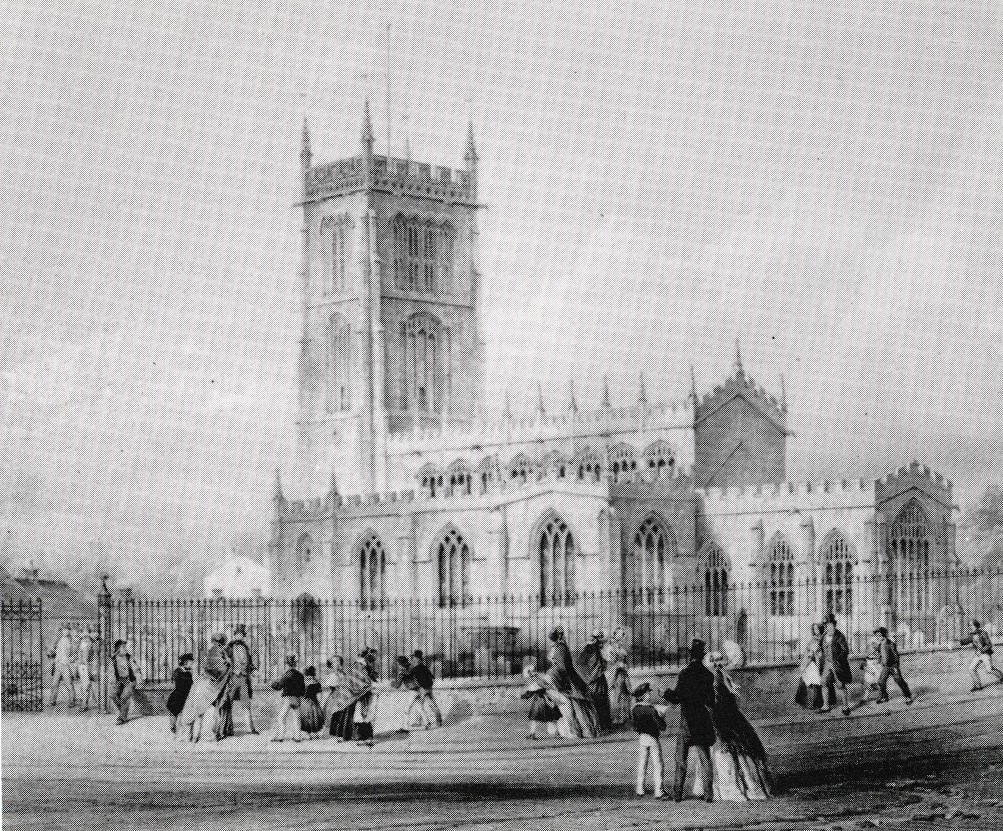What has Henry Fearon ever done for us?
28 August 2020
Every time you draw a glass of water from a tap in Loughborough, spare a thought for Reverend – later Archdeacon – Henry Fearon, without whose cunning and determination that everyday action (which we so readily take for granted) might not have come about.
‘But he lived long before I was born,’ you might say, ‘so what’s he got to do with me?’ To answer that question properly, we need to go right back to the beginning of Henry Fearon’s story – or at least, to the time he first arrived in the town.
We begin the tale in 1848.
The Reverend Henry Fearon (1802-1885) was granted the living of Loughborough All Saints Parish on 14th February 1848 and officially took up post as Rector on 3rd of May the same year, shortly before his 46th birthday. A graduate of Cambridge University, he’d spent some of his time there studying ‘sanitary science’ – one of the hot topics of the day, followed avidly by the Queen’s Consort, Prince Albert, who despaired at the situation of the British labouring classes and was encouraging the building of new homes with good ventilation and decent sanitation for them to live in.
These matters were debated in newspapers and periodicals and presented to the fiction-loving public by celebrated authors such as Charles Dickens, Elizabeth Gaskell and Charles Kingsley, to name but a few. It wasn’t uncommon for the middle- and upper-classes to visit slums to see the situation of the poor first hand – as did Dickens himself, touring areas of London with Dr Thomas Southwood Smith, who’d worked on the 1834 amendment to the Poor Law under the leadership of social reformer Edwin Chadwick.
Unaware as yet that infection and disease are transmitted by bacteria, it was believed then that illness was carried by smell. The wealthy therefore viewed poor health and shortened life expectancy as the predicament of the unwashed poor and it was generally believed that improving sanitation was key to addressing the social issues of the lower classes.
And to an extent, they had a point. Overwork, overcrowding, poor diet and poor physical health made the working population susceptible to the outbreaks of typhus, cholera, and smallpox which regularly spread across the country.
By 1848 poor sanitation and its affects on the poor had been debated for well over a decade. Henry Fearon arrived just before a small outbreak of cholera in Loughborough and just as the debate about sanitation was to step up a gear in the town.
Alison Mott

Read the next post in this topic here.